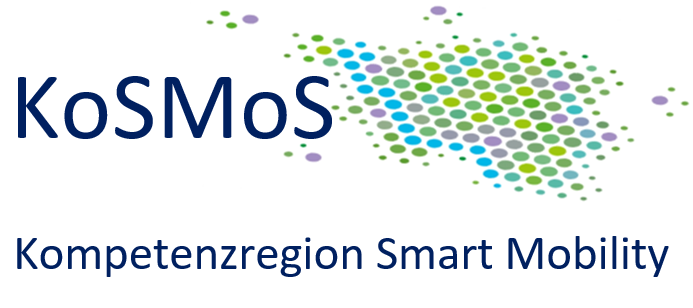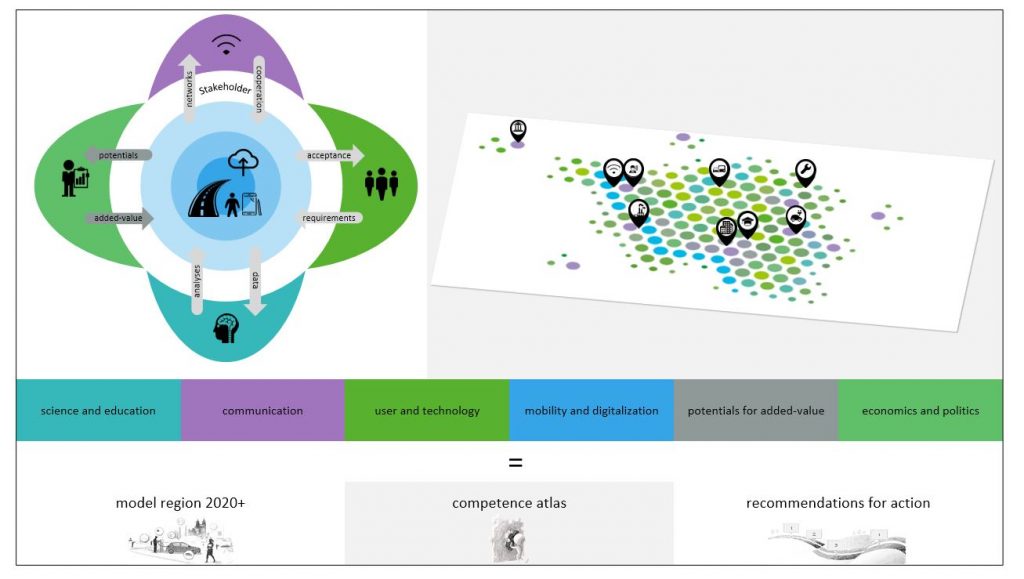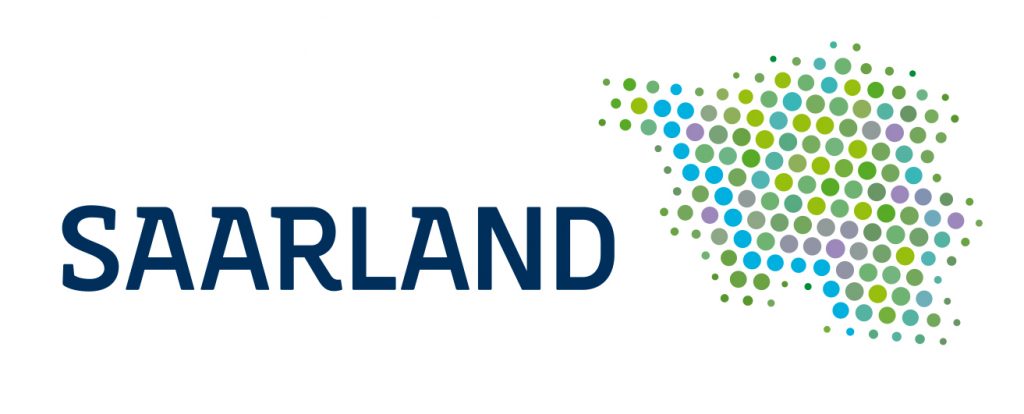KoSMoS (2017-2020)

Motivation
The automotive sector is facing a profound change. Mobility needs to be rethought in order to meet global and societal challenges such as climate or demographic change. At the same time, this transformation offers the opportunity to optimally shape traffic for a future that is socially fair and sustainable. The tools for this are new mobility concepts, technological progress and an increasing digitization of living environments. As the recently published study “Smart Mobility for the Saarland” demonstrates, these changes challenge people, communities and companies in the traditional automotive region Saarland. At the same time, this development offers economic and ecological (value added) potential for the region as a whole.
With the establishment of the test field for cooperative driving systems, neuro-cognitive awareness detection and automated driving in Merzig, the htw saar has taken the first steps towards the model region for digitally networked driving. The findings and experiences gained there can now be transferred to other regions, to cities and rural areas. This has not only a techno-economic, but also a political and socio-psychological dimension.
Past projects have shown that a holistic view of the driving environment makes sense. Especially in the area of mobility, extraordinary problems ask for tailored solutions. The consideration of business cases ensures that the solutions are generally economically viable and feasible. All too often, researched measures fail because of the lack of practicability, for example because no business model can be found to finance necessary investments or because people are skeptical about technology (see Electromobility).
The interactions of the test field with its environment are multi-dimensional. On the one hand, it is important to clarify which requirements citizens have for the new technology so that they can be accepted and used in everyday life. On the other hand, it has to be clarified which stakeholders of the communications, infrastructure, IT and automotive industries, but also of the public sector, can and will take over which roles in the future. What added-value potential does this offer for the Saarland as a potential competence region? Which synergies and cross-innovations are possible?
With its Innovation Strategy 2016-2023, the Saarland has laid the foundation for making the region fit for the future. KoSMoS contributes directly to this by creating a new competence network between science and industry as well as ICT and automotive. This will bring a benefit for the existing top research, large employers in the industry, as well as small and medium-sized enterprises.
Objective of the project
The overall objective of the project is to explore holistically and cross-disciplinarily which socioeconomic implications the digitization of mobility has in a regional context. The exploratory approach of KoSMoS is looking for transferable insights in the hitherto largely unresolved scientific fields of economic potential, technology acceptance and the interaction effects of smart mobility with other technologies. As a result, a competence atlas for smart mobility is created, that defines new impulses. As a basis for research, the databases of the IHK Saarland and the Automotive Cluster Saarland are available to KoSMoS free of charge.

The internet link for the online version of the Competence Atlas of the region will soon be available here: https://kosmos-project.eu/
Project duration
1st Jul. 2017 to 30th Jun. 2020
(36 months)
sponsored by:

